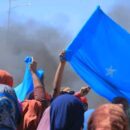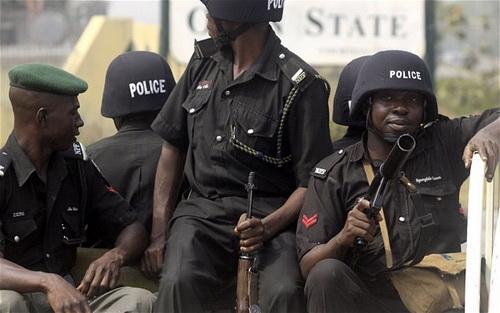Citizenship Rights in Africa Initiative
Submission to the AU Peace and Security Council on the right to a nationality in the context of the referendum in Southern Sudan
26 January 2011
The undersigned civil society organisations, who are supporters of the Citizenship Rights in
Africa Initiative, a campaign for the right to nationality in Africa, present our complements to the members of the AU Peace and Security Council (PSC). We make this submission to request the PSC to take all necessary steps to ensure that the right to a nationality is respected for all following the anticipated secession of Southern Sudan to become a new state on 9 July 2011, and, in case of need, to take appropriate steps to ensure that this question does not form the basis for a serious conflict between the two states.
We welcome statements by President Bashir indicating his commitment to protect southerners in the North from violence, and his promise to allow them to retain residence and employmentin the private sector, and to keep students in education. Similarly, we welcome statements on behalf of the Government of Southern Sudan indicating that the rights of northerners in the South will be protected, while those pastoralists whose home base is in the North will preserve their traditional rights to graze and move cattle through the South.
Nonetheless, the allocation of nationality rights between the two future states remains of critical importance for the human rights of those concerned, and the current failure of the negotiating parties to agree a framework on nationality law is therefore very worrying. The African Commission on Human and Peoples’ Rights has clearly found that the right to a nationality is a key component of the African human rights system. It has ruled that the provision of Article 5 of the African Charter on Human and Peoples’ Rights that states “Every individual shall have the right to the respect of the dignity inherent in a human being and to therecognition of his legal status” includes the right to a nationality and protection against arbitrary deprivation of nationality. In addition, the Commission has held that the due processprotections included in the African Charter apply to everyone, including persons alleged to benon-nationals. Finally, the Commission has ruled in several cases that mass expulsions onthe basis of ethnicity, specifically prohibited by Article 12(5) of the African Charter, “constitutea special violation of human rights.” It is to be hoped that the Commission never needs to hear a case on mass expulsions from either successor state in Sudan: and the Peace and Security Council should be particularly concerned to avoid any such outcome as a result of the referendum on independence.
We understand that the current position of the National Congress Party (NCP)-led governmentof the Republic of Sudan is that all those who were eligible to vote in the referendum (those who are members of “one of the indigenous communities that settled in Southern Sudan on orbefore the 1st of January 1956”) should automatically become nationals of Southern Sudan on the basis of their ethnicity, with no right to opt for the nationality of the Republic of Sudan, even if they have been resident there for many years or have other strong connections, and that dual nationality will not be permitted. The Government of Southern Sudan, meanwhile, has indicated that it will not automatically grant its nationality to all those eligible to vote in the referendum who are resident in the North, but will require a process of individual application for those resident outside the territory of Southern Sudan.
This situation creates a substantial risk that a large stateless population will be created. The grant of nationality in law or practice on the basis of ethnicity creates the likelihood that the right to nationality of those whose status as “indigenous” may be in doubt will not be respected, however long their families may have been resident on the territory concerned.
Among the groups most likely to be affected are those that have members on both sides of the north-south border and people of mixed ethnic parentage. Such discrimination, and the lack of respect for other rights that often follows, brings in turn the serious danger of long-term instability and conflict, as illustrated by the ongoing crises in the Democratic Republic of Congo and Cí´te d’Ivoire, among other cases.
To avoid these problems, the presumption in international law when a territory secedes is that nationality will be awarded on the primary basis of habitual residence (with secondary criteria such as links to the territory through birth or family ties applied to ensure that no individual is left without a nationality). This is the system most likely to avoid statelessness and to give individuals the nationality of the country where the centre of their interests lie; as a second best option, nationality could be attributed on the basis of place of birth of a person or his or her parents.
In addition, when a territory secedes, the usual rule is presumed to be that a person who has a connection to both the continuing and new states should be given the right to choose his or her preferred nationality. Perhaps most obviously, the right to opt would help to resolve the situation of those who have mixed parentage or who are members of pastoralist or nomadicgroups.
The parties have indicated that dual nationality will not be accepted between the two countries under any circumstances, although the Interim National Constitution of the Republic of Sudan and the 1994 Nationality Law currently permit dual nationality. The trend within Africa is for more and more countries to allow dual nationality: a majority now do so, and we urge you to accept the same rule for both states in Sudan. At minimum, a better solution than a total ban on dual nationality would be for individuals to choose or be given one or other nationality of the two states at first instance, but thereafter to permit them to naturalise in the other state, according to generally applicable rules. This option would provide comfort on issues of national security, while preserving principles of non-discrimination on the basis of national origin in domestic law (assuming that the Republic of Sudan would wish to preserve the right to dual nationality with other countries).
In principle, the rules governing the attribution of nationality to the pastoralist groups in Sudan should follow rules that are similar to those for the rest of the population; and they should avoid definitions of citizenship that follow ethnic boundaries, since such rules tend to create statelessness for individuals whose ethnicity is not clear cut, as well as to harden identities in a way that can be used as the basis for conflict. Though the technicalities pose some challenges, they are by no means insurmountable: the fundamental difficulties here are political. For example, the definition of habitual residence could accommodate the situation of pastoralist communities whose traditional migration routes cross the north-south border by including a cumulative period of residence over several years rather than requiring in all cases a continuous period of residence in one place.
In any event, there should be due process protections before the nationality of the Republic of Sudan can be withdrawn. In particular, the Republic of Sudan should not withdraw its nationality from those persons who were displaced from Southern Sudan during the civil war and are now resident in the north (or in a third country) without verifying that each individual has in fact acquired Southern Sudanese nationality and without providing an appeal to the courts from an administrative decision.
Finally, we urge you to ensure that an agreement on nationality also guarantees that, in recognition of the shared history between the two states in Sudan, all those who were previously Sudanese nationals shall have the right to reside, to practise their profession, or to establish a business in either successor state, whether or not they have its nationality, and to freedom of movement within either state and between the two successor states.
In summary, we urge you to ensure that, in the interests of the peace and security of the region, both the Republic of Sudan and the future government of South Sudan rapidly adopt nationality laws that, at minimum:
- Do not discriminate on the basis of race, ethnicity, language, religion, gender or any
similar ground prohibited by the African Charter on Human and Peoples’ Rights;
- Provide those who have a connection to both states with a right to opt for their
preferred nationality during a transitional period;
- Provide for dual nationality between north and south; and, at minimum, permit dual
nationality by naturalisation following the option for an initial nationality;
- Provide for due process in the process of withdrawal or grant of nationality; and
- Provide guarantees against statelessness.
We reiterate our commitment to work closely with the PSC for the realisation of these
objectives and assure you of our greatest respect.
Statement endorsed by supporting organisations of the Citizenship Rights in Africa Initiative
1. Action pour les Droits Humains et l’Amitié
2. African Democracy Forum
3. Alfallah Local NGO
4. Arab Coalition for Darfur (ACDarfur)
5. Centre de recherche sur l’environment, la democratie et les droits de l’homme
(CREDDHO)
6. Centre for Minority Rights Development (CEMIRIDE)
7. Consortium for Refugees and Migrants in South Africa (CoRMSA)
8. Coordination des Organisations de la Société civile pour la Défense de
l’Environnement et le Développement du Bassin du fleuve Sénégal (CODESEN)
9. Darfur Reconciliation and Development Organization (DRDO)
10. Ditshwanelo – the Botswana Centre for Human Rights
11. Egyptian Initiative for Personal Rights (EIPR)
12. Hargeisa Women’s Rescue Association (HWRA)
13. Horn Handicap Women Association (HHWA)
14. Institute for Human Rights and Development in Africa (IHRDA)
15. International Refugee Rights Initiative (IRRI)
16. International Commission of Jurists, Africa Regional Programme (ICJ)
17. Kenya Human Rights Commission (KHRC)
18. Open Society Justice Initiative
19. Pan African Movement (PAM)
20. Refugees International
21. Rema Ministries (Burundi)
22. Socio-Economic Rights & Accountability Project (SERAP)
23. Somaliland Transformation Group (SOMTRAG)
24. Sudan Democracy First
25. Union des Ressortissants Rwandais au Sénégal (URRS)
26. West African Refugees and Internally Displaced Persons Network (WARIPNET)






